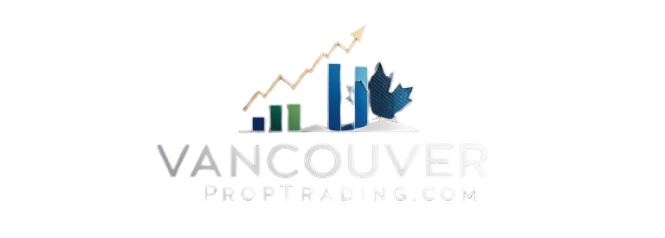Passing a proprietary trading evaluation challenge requires more than just a solid strategy—it demands discipline, emotional control, and a strong mindset. Many traders fail these challenges not because of their technical skills, but due to psychological pitfalls such as overtrading, fear, and impulsive decision-making.
While challenge-based models are popular, they are not the only way to become a proprietary trader. Some firms, like Maverick Trading and T3 Trading Group, offer alternative paths where traders undergo training and risk assessment instead of a strict challenge. Choosing the right firm depends on your trading style, risk tolerance, and preference for structured development versus performance-based evaluations.
This guide will help you understand the psychological challenges of passing a prop firm evaluation and provide practical strategies to improve your discipline and mental resilience, while also exploring alternative paths for prop trading success.

Why Many Traders Fail Prop Trading Challenges
1. Overtrading and Impulse Trading
One of the biggest mistakes traders make is forcing trades just to meet the evaluation’s profit targets. Many prop firms require a minimum number of trading days, which can lead traders to enter low-quality trades just to meet the requirement.
How to Avoid This:
-
- Focus on quality over quantity—stick to your best setups.
-
- Use a trading plan to predefine when and why you’ll enter a trade.
-
- Take breaks if you feel the urge to overtrade.
2. Revenge Trading After a Loss
Losing trades are part of the process, but revenge trading—trying to immediately make back losses—often leads to further mistakes and blowing the challenge.
How to Avoid This:
-
- Accept that losses happen, even in successful evaluations.
-
- Stick to your max daily loss limit and walk away when reached.
-
- Keep a trade journal to analyze mistakes objectively.
3. Fear of Missing Out (FOMO)
Many traders enter suboptimal trades because they fear missing a move. This often results in poor risk-reward trades that don’t align with their strategy.
How to Avoid This:
-
- Remember, the market will always provide opportunities.
-
- Follow a strict entry checklist to confirm setups.
-
- Stay patient—passing the challenge isn’t about fast profits, but consistent execution.
Choosing the Right Proprietary Trading Path
While many prop firms use challenge-based models, others provide alternative pathways. These firms focus on training, assessment, and structured capital allocation rather than a short-term challenge.
Challenge-Based Model (FTMO, TopStep, etc.)
-
- Pros: Lower upfront cost, no long-term commitment, high profit splits.
-
- Cons: High failure rate, strict rules, pressure to perform in a short time frame.
Training & Assessment-Based Model (Maverick Trading, SMB Capital, T3 Trading Group)
-
- Pros: Access to structured training, risk management support, professional mentorship.
-
- Cons: Often requires an initial membership or capital commitment, longer time to access full capital.
Choosing between these models depends on whether you prefer immediate high-risk evaluation or a structured career path with development and support.
Developing a Mindset for Success
1. Emotional Discipline and Self-Control
Proprietary trading firms evaluate not just profitability, but how well traders handle pressure and risk management.
How to Strengthen Discipline:
-
- Set rules for yourself and follow them without exception.
-
- Avoid trading when emotionally affected by prior losses or external stress.
-
- Create a pre-trading routine to focus your mindset before each session.
2. Building Resilience After Failing a Challenge
Many traders fail their first evaluation. Instead of seeing this as a loss, treat it as a learning experience.
How to Bounce Back:
-
- Review your past trades—identify strengths and weaknesses.
-
- Practice in a demo environment before retaking the challenge.
-
- Set a clear improvement plan before trying again.
3. Handling Performance Pressure
Traders often feel intense pressure to pass a challenge quickly, leading to poor decisions and unnecessary risk-taking.
How to Reduce Pressure:
-
- Focus on trading well, not just passing quickly.
-
- Reframe the challenge as a test of your discipline, not just profitability.
-
- Remember, even if you don’t pass on the first attempt, prop firms allow multiple retries.
Practical Techniques to Improve Trading Psychology
1. Use Visualization and Mental Rehearsal
Top-performing traders visualize their trades before executing them. This helps develop confidence and consistency.
How to Apply This:
-
- Before trading, mentally rehearse your strategy and risk management.
-
- Picture yourself following your plan even after a losing streak.
2. Mindfulness and Stress Management
Since trading is a high-pressure activity, stress management is key to staying calm and focused.
Ways to Reduce Trading Stress:
-
- Meditation or breathing exercises before and after trading.
-
- Taking breaks during market hours to reset mentally.
-
- Keeping a balanced routine with sleep, exercise, and nutrition.
3. Maintain a Trade Journal
A trade journal isn’t just for tracking performance—it’s also a tool for self-awareness and emotional control.
What to Include:
-
- Reasons for entering and exiting each trade.
-
- How you felt before, during, and after the trade.
-
- Lessons learned from mistakes and successes.
Turning Psychology into a Strength
Passing a proprietary trading challenge isn’t just about strategy—it’s about how well you manage yourself under pressure. By focusing on discipline, emotional control, and resilience, you’ll increase your chances of success and build habits that will serve you beyond the evaluation.
Key Takeaways:
-
- Avoid psychological traps like overtrading and revenge trading.
-
- Develop emotional discipline through structured rules and routines.
-
- Learn from failures and use them to improve.
-
- Consider different prop firm models—some traders perform better under structured training, while others thrive in high-pressure evaluations.
By mastering your trading psychology, you’ll not only pass the challenge but also set yourself up for long-term success as a professional trader.
